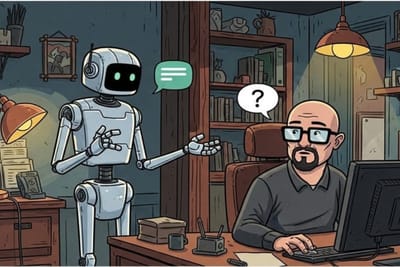I've ranted before about why so many traditional publishers have yet to embrace Web 2.0 and emerging technologies. Yes, I understand that today the onus is on individual authors to "get the word out" for their books. I honestly don't have a problem with this. I'd also argue that authors are uniquely positioned to explain the content of—and intended audiences for—their books. But I'm reminded of my basketball-playing days at college. Often during our games, the ball would wind up in an adjacent court, interrupting it in the process. I'd apologize to the fellow hoopsters and say, "A little help here?"
The O'Reilly Model
I really just don't get why all (yes, all) publishers don't do what O'Reilly does. Aside from hosting real-world and virtual conferences, they understand the importance of concepts such as community and social networks. Check out this interview by Mac Slocum with the authors of the the upcoming book Gamestorming. Is it a coincidence that the book's Amazon pre-sales numbers are a very respectable 2,500 give or take? Perhaps most fascinating for this interview is Mac Slocum's role at O'Reilly. Check out his brief bio:
Mac Slocum is O'Reilly's Online Managing Editor. At heart, he's a web guy. At various times and and at a variety of outlets, he's been a web editor, a web producer, and a web writer. He's also taught journalism courses and helped organize conferences.
How many traditional publishers even employ an online managing editor? I'd bet that few do.
Simon Says
O'Reilly is just plain smart. Sure, maintaining a web site, employing writers, and creating meaningful content all cost money and take time. But there appear to be pretty significant rewards for both publishers and authors. Increased book sales and fees from conferences certainly come to mind. More than that, though, it appears as if O'Relly views its authors as partners, not merely as independent contractors who need to generate their own buzz. It seems that most publishers take the provincial, short-term view that these types of things just don't pay off. Focusing on short-term costs instead of long-term benefits is typical of companies in industries in decline. Rather than fight the inevitable future, O'Reilly seems to be embracing it. Kudos to them.
What am I missing here? If you enjoyed this post (and how can you not?), subscribe to the RSS feed.








Member discussion